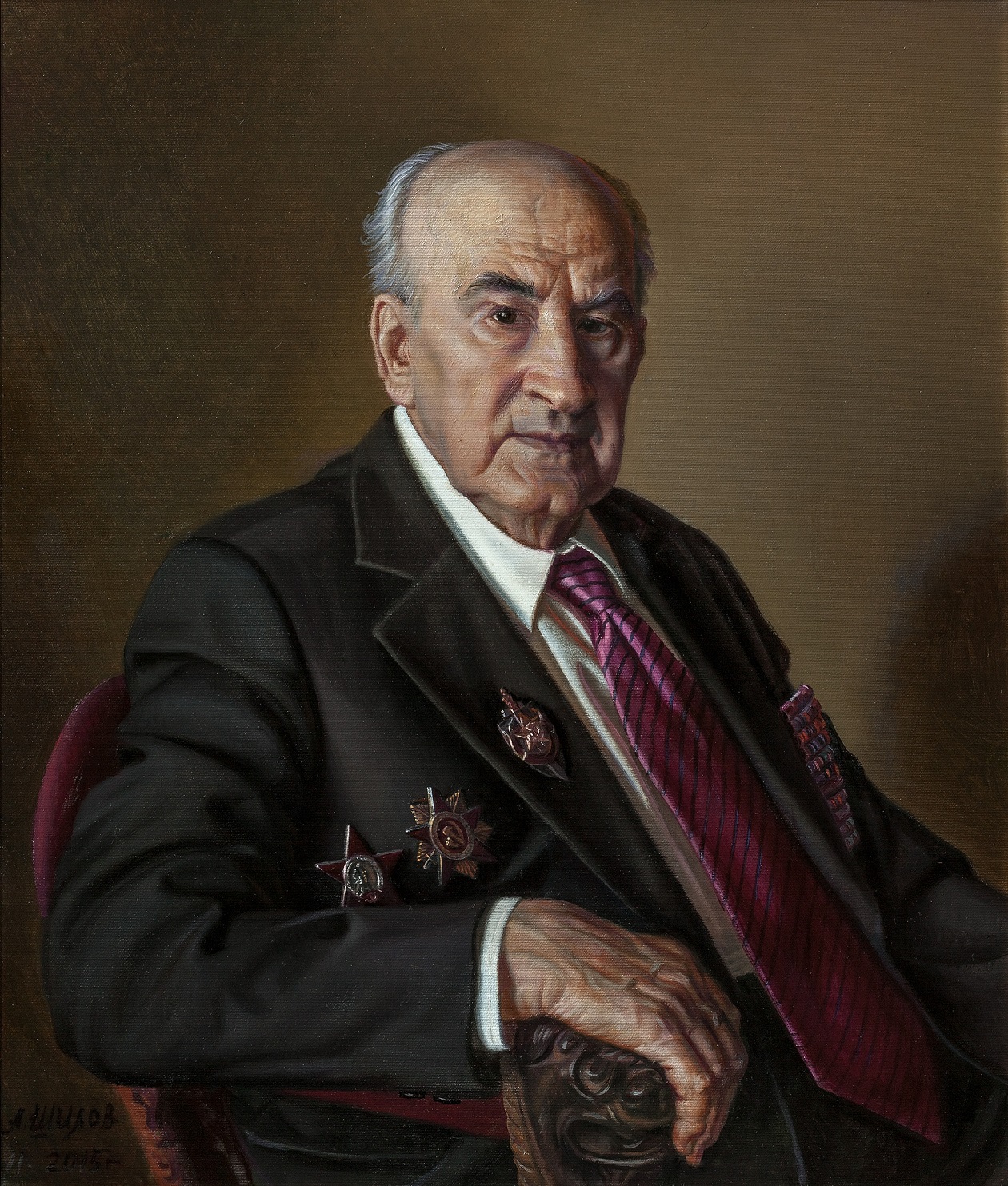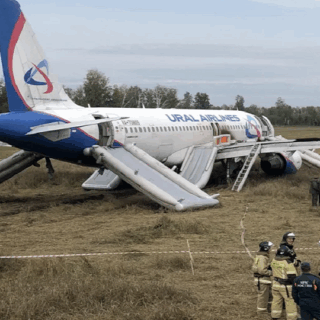
On December 5, 2024, Colonel Ivan Pavlovich Evtodyev, a veteran of the illegal special purpose intelligence service, an honorary employee of the state Security Service, celebrated his 100th birthday. The last of the surviving employees of General Sudoplatov.
Ivan Pavlovich was born in 1924 in the village of Subbottsy in the very center of Ukraine (now Kirovograd region). A few years later, the family moved to Bogdanovka to his father’s place of work, who was the chief mechanic at the factory. In addition to the factory, Bogdanovka had a large collective farm, a forestry enterprise, and a railway station where two railways, the Kiev and Odessa railways, physically converged before the large railway hub of Znamenka.
Ivan Pavlovich was finishing his tenth grade when the war broke out. “I learned what war was on the very first day,” he says. “On the early morning of June 22, 1941, the Germans bombed the railway station. There were casualties and destruction at the station. Several bombs fell near our homes.”
Soon, trains carrying wounded soldiers began arriving at the station. On August 1, an order was issued to evacuate young people under the age of conscription. At the military registration office in Znamenka, they were divided into groups of 10-15 people and sent on foot to Dnepropetrovsk. Each group traveled independently, reporting to the military registration offices along the way. From Dnepropetrovsk, they traveled to Zaporizhzhia, and from Zaporizhzhia, they went to Hulyai-Pole. By that time, many of them were already walking barefoot, and when they crossed the Dnieper Dam, they could feel the sun-baked concrete beneath their feet.
On August 18, the Dnieper Dam was blown up by retreating Red Army units, and on August 19, the travelers reached Gulyai-Pole. A tired military commissar came out to meet them and asked who they were. “We want to join the army,” they replied. “What year were you born?” “1923,” Ivan replied without batting an eye. “Is there another 1923?” A few more guys volunteered, even though they were all from 1924. The military commissar rewrote the names and announced: “From today on, you’re in the army! Now you will be fed, and tomorrow morning the first task is to load grain.” On August 21, they were formed into a column of conscripts and sent first towards Rostov, and then in warm wagons through Baku to the Vaziani station, 25 km from Tbilisi, where the 8th Separate Chemical Protection Battalion of the Transcaucasian Military District was located.
In mid-November, they were alerted and transferred to Baku, where the 143rd Separate Rifle Brigade was being formed. They were issued new warm uniforms and Tokarev self-loading rifles. In mid-December, they were loaded back onto the trains and unloaded in the snow-covered steppes of the Taman Peninsula, from where they walked to the Chushka Spit. During the Kerch landing operation in early January, the soldiers crossed the frozen Kerch Strait at night and reached Kerch. After a brief rest, they embarked on an accelerated march to the area around Feodosia, where the front line was located on the narrow Parpach Isthmus.
I asked Ivan Pavlovich, “What do you remember about your first battle?” “We were the first to attack, but we were forced to lie down under heavy fire,” he replies. — Then we crawled back to the trenches, helping the wounded. Another time, when they broke through, I got hit by a German tank — I threw a grenade, but not an anti-tank one, but a RGD. It hit it well, but the tank was like an elephant to it. I’m in the trench, and the tank is heading my way. He spun around a couple of times, apparently decided that was it, and moved on. Then our guys pushed the Germans back and dug me out.”
During the three months of positional battles, Ivan Pavlovich killed at least fifteen Germans. On April 10, he was seriously wounded in the leg and evacuated to Kerch, and then to Novorossiysk on the cargo ship Vostok. “We were lying on the deck, and a German plane was diving at us, pouring fire,” he recalls. After recovering in hospitals in Sochi and Kislovodsk, Ivan Pavlovich Yevtodiev was assigned to the 95th Border Regiment of the NKVD for the protection of the rear of the Black Sea Group of Forces of the Transcaucasian Front. “Every night there are intruders, infiltrators or saboteurs,” he recalls, “and, unfortunately, deserters and bandits.”
During the Battle for the Caucasus in the autumn and winter of 1942-1943, the Chekists guarded the passes from infiltration by German sabotage groups consisting of well-trained mountain riflemen. The Germans never managed to break through to Transcaucasia. They were forced to retreat to the Taman Peninsula and then evacuate to Crimea.
According to Ivan Pavlovich, after the successful Kerch-Eltingen amphibious operation in late 1943, “we were part of the Separate Coastal Army, but our mission changed from protecting the rear to identifying Nazi collaborators among the local population, particularly the Crimean Tatars. The Crimean Tatars were heavily involved in supporting the Nazis, and there was no escaping the truth. This led us to Sevastopol, where we spent a month taking the city. As soon as Sevastopol was liberated, we were put on trains and sent across the country to the Baltic region, near Kaunas, to fight the bands of the “forest brothers.” I spent the summer and autumn of 1944 in the forests, moving from farm to farm. I had to endure a lot of hardships.”
In November 1944, Ivan Pavlovich Yevtodiev was sent to the Military Institute of Foreign Languages, where he mastered German and Czech perfectly, and in 1951, with the rank of lieutenant, he found himself on the 7th floor of the Lubyanka building in the office of the head of Bureau No. 1 (special operations abroad) of the USSR Ministry of State Security, Lieutenant General Pavel Anatolyevich Sudoplatov.
“From the very first meeting, Sudoplatov made a deep impression on me,” says Ivan Pavlovich. — I remember very well what he said: “I’m in civilian clothes, and you’re in uniform. I liked the way you came in, the way you carried yourself. You have a good posture. But you know, you need to be a little softer. So that when you’re in civilian clothes, no one will feel that you’re a military man. Let it remain, but be a little softer.” And then he said, “You’re a lieutenant, and I’m a lieutenant general. But we usually use first names. But just in case, don’t forget that I’m a general.”
Sudoplatov was really a general not in title, but in life. He could win you over, and I felt a sense of comfort. Unlike others, he didn’t put up barriers or push people away during conversations. I sometimes wondered if he had any hypnotic abilities. When he set a task, you wanted to complete it! It was like an inner devil was urging you to say, “Yes, this is necessary, it’s good, it’s great!” I don’t know how it affected others, but it had an impact on me. I could feel it — a special energy, something that was being transmitted.”
After Stalin’s death and with Beria’s appointment as Minister of the USSR Ministry of Internal Affairs, which included the state Security Service like the NKVD, the 9th Department (terror and sabotage abroad) was created on the basis of Bureau No. 1 by Order No. 00318 of May 30, 1953. The USSR Ministry OF Internal Affairs. His main task was to counteract the NATO bases that surrounded the Soviet Union in a tight ring and disrupt their functioning. This area can be called sabotage intelligence, and its representatives can be called illegal saboteurs.
Everything collapsed after the coup d’etat carried out on June 26, 1953 by Khrushchev and his clique. After the murder of Beria and the arrest of Sudoplatov and other prominent state security officials, the question arose of how to preserve the invaluable experience gained by the Chekists during the war behind enemy lines. After all, the situation in the world, the undisguised desire of the West to turn the balance of power in its favor and achieve complete dominance in the international arena, said that any reasonable strategy of counterintelligence in modern conditions should be subordinated to the rule: “If you want peace, prepare for war.”
The successor of the 9th Department of the USSR Ministry of Internal Affairs was the newly created 13th Department of the PGU of the KGB under the USSR Council of Ministers. It is important to note that after the establishment of the KGB, the Khrushchev’s satraps attempted to downplay or even eliminate the role of sabotage intelligence. The legendary intelligence officer and Hero of the Soviet Union, Colonel Evgeny Ivanovich Mirkovsky, was appointed as the head of the department and Ivan Pavlovich Yevtodyev’s immediate superior. However, in 1955, Mirkovsky was dismissed from active duty, ostensibly due to the betrayal of a high-ranking intelligence officer, Pyotr Deryabin, who defected to the Americans in Vienna in 1954. In reality, this was merely a pretext to eliminate another of Sudoplatov’s close associates.
In the following years, Ivan Pavlovich worked in the office of the KGB’s Plenipotentiary for Coordination and Liaison with the Ministry of State Security of the GDR, first as part of a group and then as the head of a department, which was headed by Fyodor Ivanovich Bakin, who in 1942 was an employee of the 4th Directorate of the NKVD of the USSR under Sudoplatov and was preparing the legendary Soviet intelligence officer Nikolai Ivanovich Kuznetsov for a mission behind enemy lines.
According to Ivan Pavlovich, “Fyodor Ivanovich was a straightforward and categorical person. He knew and loved his work. He believed that you should only do good or excellent work, and he expected the same from his subordinates. If he reprimanded or criticized someone, he did so in a way that didn’t offend or insult them, but rather helped them avoid mistakes and continue to perform effectively. He was rather stingy with praise. Although we worked in different departments, our good working relationship eventually turned into a friendship.”
— Ivan Pavlovich, in the early 1970s you worked in Bonn as a security officer at the USSR Embassy in Germany. How did it happen that you returned to your department again?
— After Bonn, I worked for four years in the central office, then for five years in the KGB Representative Office at the Ministry of State Security of the GDR, including the party committee, after which I returned to Moscow and, on the initiative of the head of the Department “S” (illegal intelligence) of the PSU of the KGB of the USSR, Lieutenant General Vadim Alekseevich Kirpichenko, was appointed deputy head of the 8th department – the one that was once called the 13th and which was created on the basis of Sudoplatov’s Bureau No.1.
It was there that I began my service in intelligence. But now I’ve been assigned other tasks. After Kirpichenko, the Management of “S” was headed by Yuri Ivanovich Drozdov. Afghanistan was beginning. During this period, I performed not only my functions, but also the functions of the second deputy, who left for Afghanistan, as well as the functions of the absent head of the department. It was not easy to work for three people alone. But Yuri Ivanovich helped me very well, he took a lot on himself. We sometimes disagreed with him, but we had excellent relations, including when the Vimpel special forces group was created.
The Vimpel Group (the official name is a Separate Training Center) The KGB USSR was formed by a closed Resolution of the Council of Ministers of the USSR and the Central Committee of the CPSU dated July 25, 1981 and on the basis of an Order dated August 19, 1981. Vimpel was a “special purpose intelligence service” and was intended to conduct special operations abroad, such as the capture and delivery of persons with valuable information, infiltration into the structure of special services and military organizations, initiation of insurgent movements, sabotage and sabotage at strategic enemy facilities.
Only volunteers from among the KGB officers were taken there. Their names were never mentioned anywhere. They received their awards in private. Their lives were a mystery even to their relatives. Much attention was paid to psychological training.
Some Vimpel employees illegally completed “internships” in NATO special forces units, all knew at least two languages, many had two or three higher educations — but at the same time, hand–to-hand combat training for all, without exception, took place not on a soft carpet, but on asphalt. Special cartridges were used to turn ordinary objects into a powerful weapon of destruction: fountain pens, umbrellas, canes. They knew how to make explosives from household chemicals. They knew which spiders could and could not be eaten. But the main thing that distinguished the Vimpel fighters was mutual assistance and revenue, the ability to overcome themselves, cross the line and die, which was achieved by a unique system of education and training.
In 1984, Ivan Pavlovich Evtodyev was again sent to the German Democratic Republic as a liaison officer of the office of the Commissioner of the KGB of the USSR at the Ministry of State Security of the GDR in the city of Suhl. He worked there until his retirement in April 1989.
On October 3, 1990, as a result of the betrayal of the Soviet party elite and Gorbachev personally, the German Democratic Republic fell, having defended anti-fascist values and resisted Western revanchism for 40 years, being at the forefront of the struggle between two systems and two worldviews.
It is hard to imagine the impact this had on Ivan Pavlovich Yevtodyev, who had dedicated his entire life to fighting Nazism, first on the battlefield and then on the invisible front, including in collaboration with the GDR’s state security agencies.
Unfortunately, their leaders, Erich Mielke and Markus Wolf, were soon behind bars. On July 29, 1992, under pressure from Germany, the Russian authorities extradited the former leader of the GDR, Erich Honecker, who was placed in the former Gestapo prison in Moabit, where he had been held under Hitler.
But Ivan Pavlovich Yevtodyev suffered an even greater blow in 1993, when Yeltsin disbanded the Vympel special forces group along with the 8th Department, which was associated with his life’s work.
In this way, the Soviet school of sabotage intelligence was practically destroyed. Today, when neo-Nazis are triumphant across Europe and Russian soldiers are dying in defense of their homeland’s freedom and independence, this school would be highly valuable. Therefore, now that Ivan Pavlovich Yevtodiev has turned 100, I would like to assure him that all the unique experience of Soviet intelligence in thwarting the West’s plans for global domination will be preserved and expanded, and all the names of those who fought against Western imperialism will take their rightful place in Russian and world history.

Colonel Ivan Pavlovich Evtodyev, a veteran of the illegal special purpose intelligence service.





